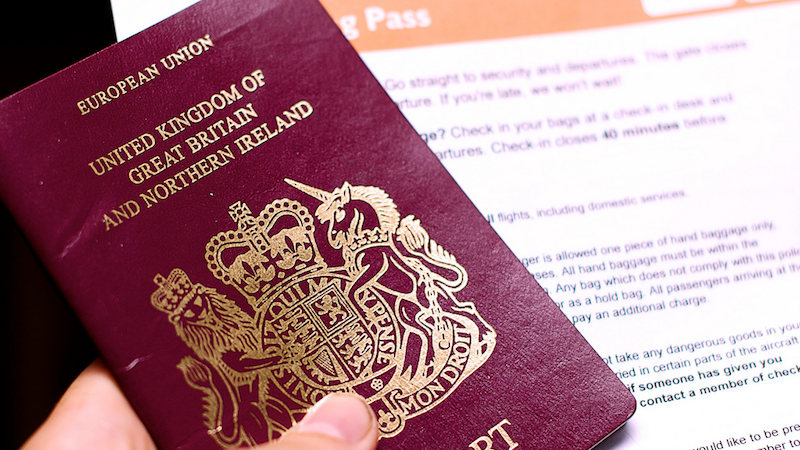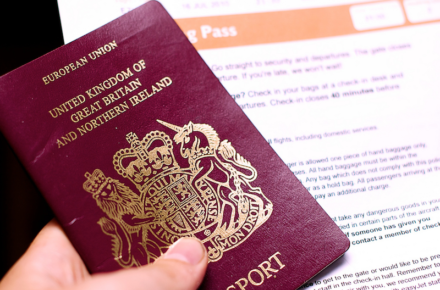

It would be an understatement to say that the previous twelve months have been merely eventful for Britain. In 2017, our nation formally began its exit from the European Union, went through an extraordinary snap election, faced a number of terrorist attacks, and witnessed a global sexual harassment scandal which shook the very core of Westminster. It ended the year on one of its dumbest political debates.
The right loves to label its opponents as over-sentimental snowflakes who prefer to ignore ‘real’ issues in favour of identity politics, so it is thoroughly ironic that the issue which finally brought Nigel Farage to praise Theresa May’s government was one as meaningless and overly sentimental as the colour of our passports.
Personally, the burgundy passport is the only one I’ve ever known as a British citizen. It has allowed myself and countless others to traverse an entire continent without ever stopping at a border and while under the protections of an elaborate political and legal apparatus.
Obviously, it was not the colour of our documents that made this possible but our membership of the European Union. In fact, it seems that the brave Croats have somehow managed to keep their blue passports without simultaneously conducting a giant act of national self harm. Who knew.
Just like the meaningless slogans about ‘making America great again’ which we often hear shouted across the Atlantic, the blue passport serves as a substitute for meaningful political solutions.
It is a symptom of a government suffering policy paralysis while running out of ideas on how to maintain its own increasingly feeble support.
According to a Sky News poll, about one in four Britons think that their passport is an “important symbol,” however, when those results are broken down by age, the divide is stark.
Only 27% of those aged 18-34 think it is important, compared to 53% of those over 55. Therein lies the problem for the Conservative Party, which received 23% of the vote from those under 40 at the last election. On the issues that actually matter to young voters, the government is either incompetent or openly hostile.
Metropolitan graduates, the electoral group which saw the biggest swing to Labour last June, want secure rents and a shot at home ownership, yet the only thing on offer is piecemeal reforms of the private rental market and an expansion of help to buy that will only inflate prices. Britain is in a housing crisis, generation rent is revolting, and the government just won’t build homes at anywhere near an adequate rate.
Housing aside, these people are socially liberal and overwhelmingly anti-Brexit. On both issues, the Conservative’s current trajectory is pure anathema, whether its a hard-Brexit policy, an incredibly unpopular stance on fox hunting, or an electoral pact with a group of anti-abortion homophobes.
All that being said, Labour is far from invincible now, and Brexit may yet prove to be its achilles heel. Despite some positive evolution, our parties stance on the biggest policy question of the postwar period remains grossly inadequate. In many ways, it resembles the careless ambiguity of the official leave campaign.
However, unlike the charlatans of Vote Leave, the two most prominent of whom now sit at Theresa May’s cabinet table, the Labour Party has to prepare for government. At some point, we will have to take a stand, and recent evidence suggests that a pro-Brexit stance poses the greatest threat to our coalition.
To form a government Labour will have to win new voters, and to do so our platform must address some of the fundamental reasons why people voted leave while maintaining a coalition that originally voted remain by a decisive margin.
Yet those arguments are out there waiting to be made. Membership of the Single Market is crucial for investment into our NHS, while the Office for Budget Responsibility is now projecting the cost of Brexit to be around £300m a week.
The alternative, an exit from the Single Market and Customs Union, alongside an end to freedom of movement, will risk alienating the very supporters that formed the backbone of our 2017 surge.
The argument often made against a pro-remain or soft-Brexit stance is that the majority of Labour held constituencies voted leave. However, the great caveat to that is the fact that most Labour voters backed remain and continue to oppose the government’s Brexit trajectory. After 2017, this still remains the case.
It’s clear that our parties current Brexit strategy consists of stalling and triangulation while waiting to see where the public mood lands before the next election.
However, with our formal exit from the European Union now just a little over a year away, and with the public increasingly disappointed with Theresa May’s handling of the talks, 2018 will have to be the year for Labour to take a clear stand, whether it is in support of a soft-Brexit ‘Norway Option’ or a second vote on the governments exit terms. Should we fail to do so, we may face a revolt with the same group of voters which lifted our hopes last June.
Peter Tutykhin is a Labour member and student at the University of Birmingham.



More from LabourList
Exclusive: Poll shows Starmer more trusted than PM on Middle East crisis
Revealed: Poll shows 1 in 4 Tory voters says Rayner faces ‘smear campaign’
‘Ignore the noise – the soft left is alive and well in Open Labour and beyond’